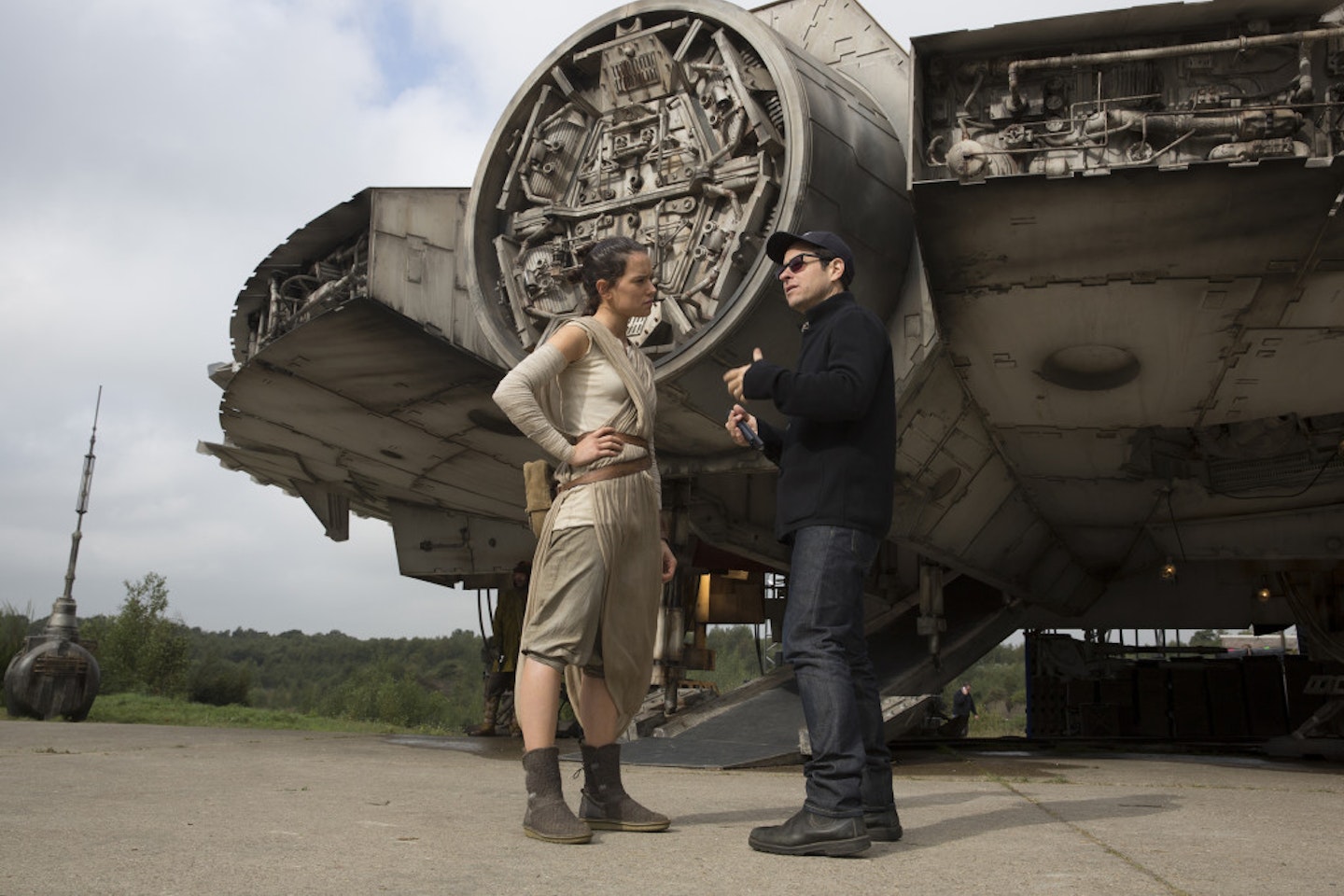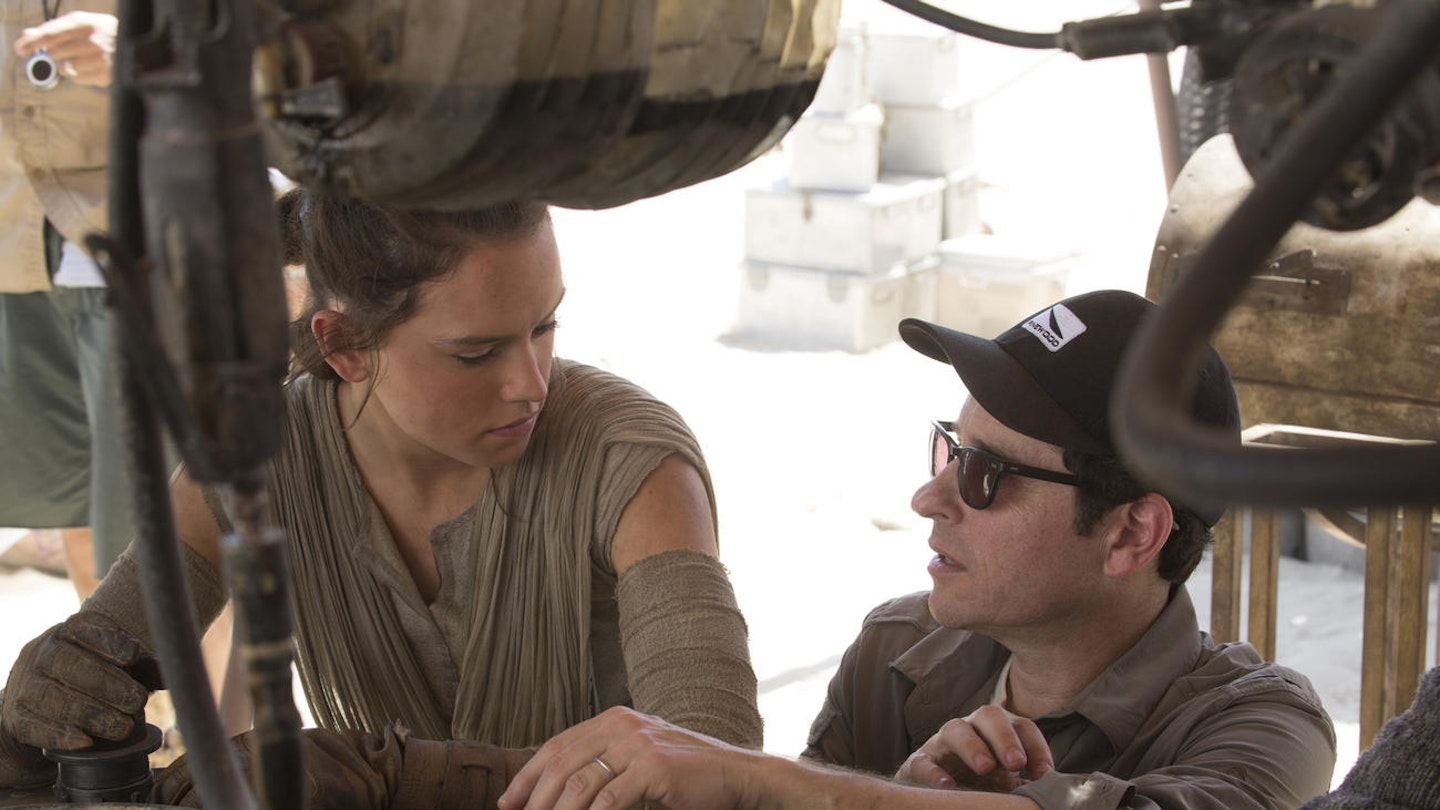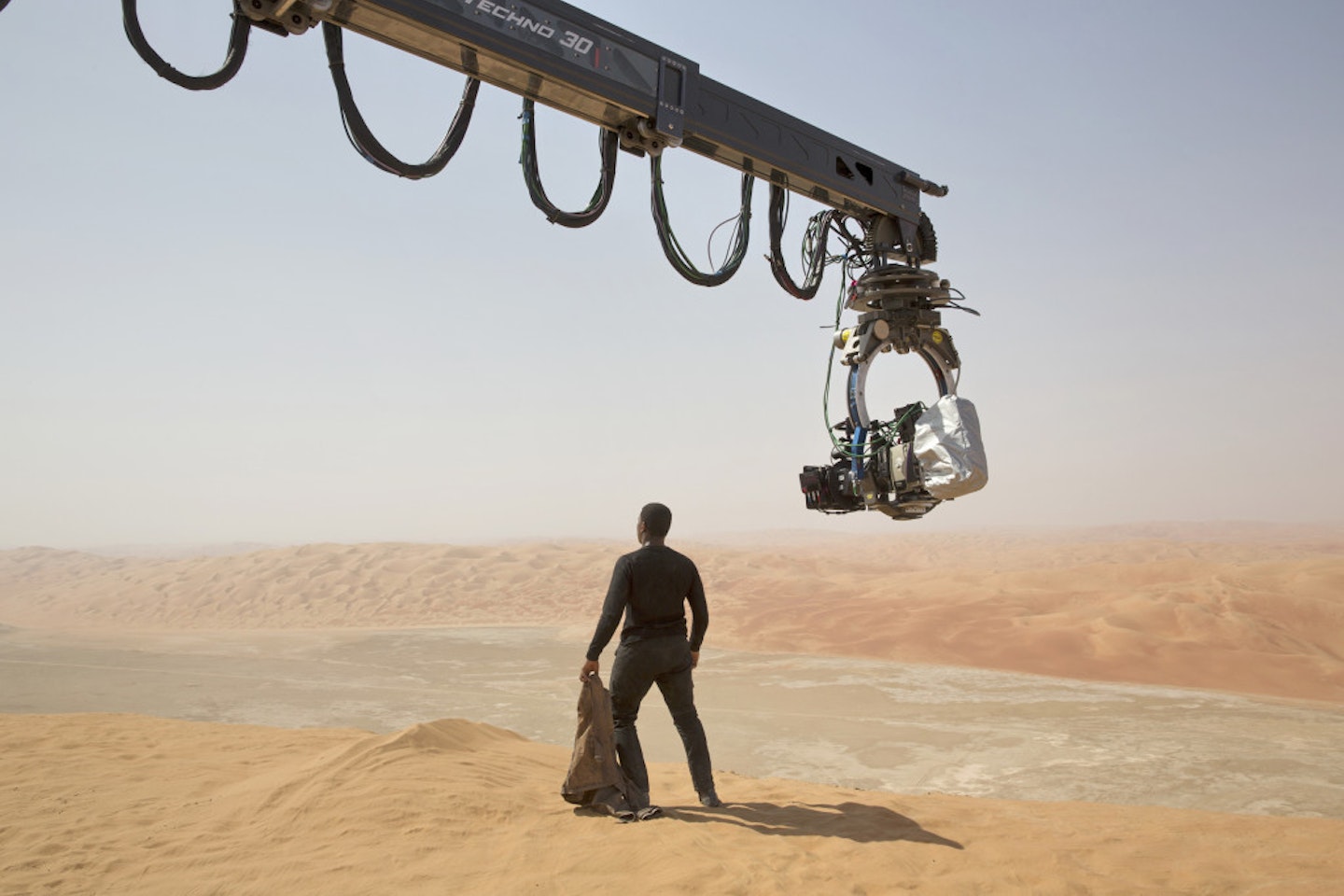On October 30 2012, George Lucas announced the sale of Lucasfilm to Disney and shocked the world. It wasn't the dollar value of the purchase (a shade over $4 billion) or Lucas' sudden retirement from filmmaking, but the revelation that, despite his former insistence to the contrary, the Star Wars story would continue. Three years on, Star Wars: The Force Awakens has finally arrived, to continue the saga where it left off in 1983. Here is the story behind the most anticipated movie in a decade, from the people who made it.
Part I: Beginnings
J.J. Abrams (Director): I was in post on Into Darkness when I first got the call from Kathy saying she wanted to talk about Star Wars.
Kathleen Kennedy (Producer): I’ve known JJ since he was 15 years old and he was always way at the top of my list. He told his agent no twice, so I decided to just go talk to him directly.
Abrams: I had spent the last few years living in another series of films that took place in space, plus my family and I were supposed to go on six-month vacation. But more than any of that, it was terrifying.
Kennedy: The more we got to talking about it, the more we resurrected all those feelings that he had about what Star Wars meant to him.

Abrams: I had fully intended to once again say ‘thank you but no thank you.’ But when I heard how she wanted to do this in the most emotional, character-based and authentic way, I found myself leaning forward and, just for a moment, imagining what it would be to direct a Star Wars movie.
Lawrence Kasdan (Screenwriter): George and Kathy said they were gonna do some more Star Wars movies. They said, “Here are the subjects, you can choose one.” So I chose Han Solo, but they also asked if I would consult on Episode VII.
Abrams: He wrote Empire and Jedi! Having Lawrence Kasdan in the room with you when you are wondering, “Just what happened to the Empire?”, or “Where is Leia at this moment?” was fabulous.
Kasdan: I’d turned down Phantom Menace because, after writing Empire and Jedi, I'd had enough. But it had been so long and it was clear that the intention was to recall the energy and the fun of the original trilogy, and that was very attractive to me.
Kennedy: George had done a sketch of the story he had in mind, but that was done for the sale of the company. It wasn't really a document to sit down and start developing a movie from.

Abrams: Michael Arndt started working on the script but Michael needed 18 months more than anyone had signed up for. We had to decide: do we wait another year-and-a-half or not? It really wasn’t an option for Kathy and the studio, and frankly I couldn’t wait until sometime next year to begin shooting this thing.
Kasdan: They said, “Would you leave Han for a while and come to work on VII?” People were already hired and they were starting to spend money in England, but there was no script! So JJ and I started it again.
Abrams: It was sort of a magical thing because we got to say “what if?” The way that Jedi ends, it gives you a sense of closure and a sense of alignment and balance but at the same time, you know, time marches on. What must have happened to these characters? We began to find moments that would make us laugh or give us chills or have us question, “Well, what happens next?”
Kasdan: That whole process carried us through Los Angeles, Santa Monica, London, Paris and New York City. We did a lot of talking and a lot of walking. We wound up walking miles and miles.
Abrams: I can’t imagine how many fans have told their own versions of these stories. We were constantly saying “Oh, this could be great for VIII” or “This would be so much fun to do now but we have to wait until IX for that”. We talked a lot about what might have happened. The end of the Empire was hardly the end of the Dark Side. It was the end of one form of evil. Our question was what might that next form be? What rises from the ashes of the Empire? Could The First Order exist as a group that actually admired The Empire? Could the work of The Empire be seen as, as unfulfilled? And could Vader be a martyr? could there be a need to see through what didn’t get done? and if that were the case why wouldn’t Stormtroopers exist? If that were the case why wouldn’t you use what worked so well for The Empire and then build bigger and better from there? That all came out of conversations about what would have happened if the Nazis all went to Argentina but then started working together again.

Kasdan: We wound up sitting in restaurants, the two of us yelling at each other about how things should go in the story. This is supposed to be the most secret script in history and we're sitting at the Café Deux Magots in Paris saying, “I don't think Han should do that,” and naming names! We worked straight through Christmas on the phone, Skyping and writing pages. We wrote 40 pages during Christmas 2013. We had a script to show people in less than two months.
Abrams: We did months and months of design work with Rick Carter and Darren Gilford, going through the endless iterations and designs. It was the very beginning of our character motivations, their evolution where we were setting the movie in motion.
Rick Carter (Production Designer): Episode VII comes after Episode VI. That seems obvious but in most people's minds, because I, II, and III came most recently, people wondered how to deal with the prequels. All the different details and aesthetics are based upon what you last saw in 1983.
Abrams: If they were still making X-Wings, If they were still making TIE Fighters, If they were still making Stormtroopers, what would they do? how would they evolve? There were endless conversations about these things. There have been hundreds if not thousands of movies where the design has been influenced by Star Wars and yet could not be Star Wars. They couldn’t do something as badass as a TIE Fighter, couldn’t do something as undeniable as a Stormtrooper, because you couldn’t rip off Star Wars. But when you are doing something that takes place within that world, to not incorporate those things felt borderline criminal.
.jpg?ar=16%3A9&fit=crop&crop=top&auto=format&w=1440&q=80)